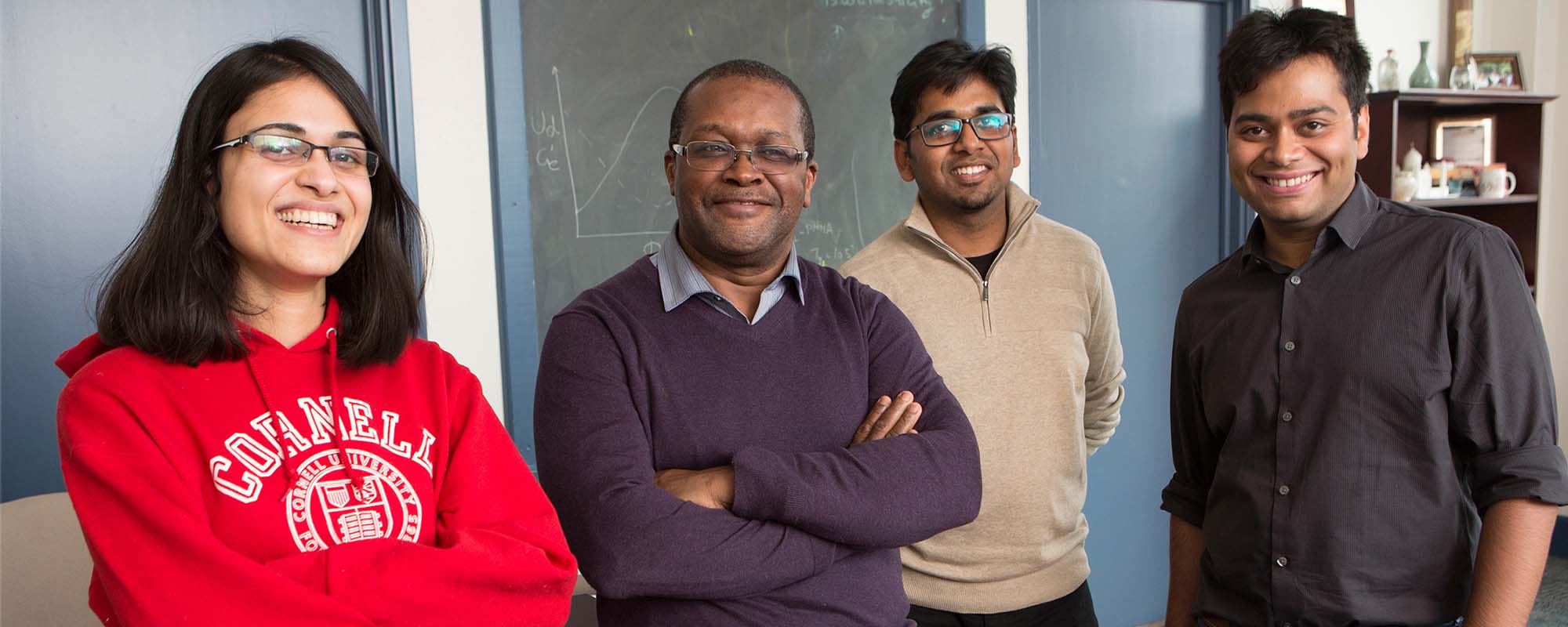Page Contents
M.S. degree requirements are flexible and you’ll be able to adjust your coursework and research to match your interests. You’ll take graduate-level chemical engineering courses, work on original research, and complete a thesis or special project before you are eligible for graduation.
M.S. Concentration Areas
-
Advanced materials processing
-
Applied math and computational methods
-
Biomedical engineering
-
Biochemical engineering
-
Classical and statistical thermodynamics
-
Fluid dynamics, rheology, and biorheology
-
Heat and mass transfer
-
Kinetics and catalysis
-
Polymers
-
Surface science
M.S. Learning Outcomes
-
Mastery and application of chemical engineering knowledge
- Demonstrate an understanding of the core subjects in chemical engineering
- Apply core subjects to technological applications
-
Problem formulation, analysis, solution and presentation of results
- Use appropriate chemical engineering techniques, tools, and methods to solve engineering problems in the context of courses and independent projects
- Apply those tools to the formulation, analysis and solution of broadly defined problems
- Demonstrate the ability to critically evaluate results
-
Communication of knowledge
- Describe effectively the formulation, analysis and solution of specific problems in chemical engineering
- Explain the technological importance of the problems and the results obtained
-
Self-directed learning and professional development
- Demonstrate the ability to assimilate information from multiple sources to solve original engineering problems of technological importance
- Work with fellow students in individual and team environments
- Understand professional roles in chemical engineering practice
- Understand that involvement in the chemical engineering profession involves a commitment to lifelong learning and continuing development of skills and abilities
Post-graduation Paths
Students who graduate with an M.S. in chemical engineering typically go on to Ph.D. programs – often at Cornell – or into industry roles.
-
Ph.D. programs that recently accepted our M.S. graduates
- Cornell University
- Columbia University
- The Pennsylvania State University
- University of California, Riverside
- University of Washington
- The Ohio State University
-
Companies that recently employed M.S. graduates
- Samsung
- Inspire Energy
- Gilead Sciences
- Dana-Farber Cancer Institute
- Genentech
- Home Depot
- Axium Nano
- Corning
- Saudi Aramco
- SF Motors
- Sinopec
M.S. Program Contacts
-
Director of Graduate Studies
Qiuming Yu
Olin Hall, Room 365
607-255-7856
cbe-dg@cornell.edu -
Graduate Field Coordinator
Tara Woodard
Olin Hall, Room 152
607-255-4550
cbe-gfa@cornell.edu
